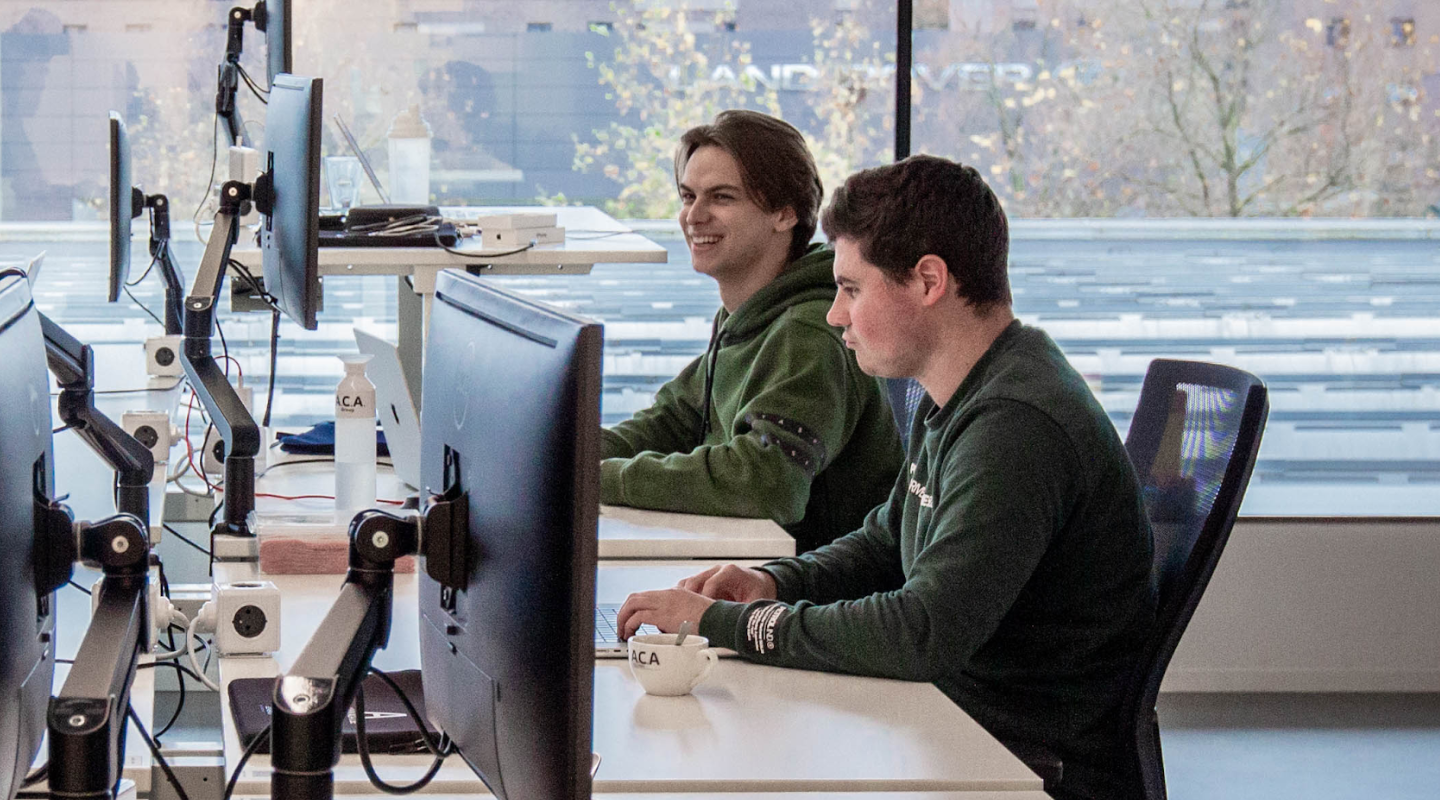
Hoe een gezonde work/life balans bewaren als thuiswerker
This blog is about how to maintain a healthy work/life balance as a remote employee.
It is becoming increasingly popular for businesses to have remote employees. The COVID-19 pandemic has resulted in lots of people working from home. This has led to permanent changes in many business processes. The work from home transition has meant both employers and staff are reaping the benefits of remote work. In fact, 99% of workers want to continue telecommuting in the future. Working from home allows businesses to save money on overheads and staff are able to better organize their day, without spending so much time commuting.
Although there are several advantages to remote work, it’s still important to maintain a healthy work/life balance. For many people, working from home may mean an increase in distractions. It can be challenging to work to the same routine as in the office. It’s also vital to ensure you have a comfortable, ergonomic workstation and that you get enough breaks. This will prevent possible health problems and enable you to keep your mental wellbeing in check. Here are a few quick tips on how to maintain a healthy work/life balance as a remote employee.
Create a dedicated workspace
If you’re working from home, it’s essential to set up the right environment. By creating a space at home dedicated to work it will be easier for you to get in the right mindset and keep productivity high. Associating this space with work helps to achieve self-discipline.
Remote work has its benefits, and many people feel more comfortable working in their own space. However, it can be difficult to find ways of separating your free-time areas and your work area. If you have a spare room, it is recommended that you dedicate this to a home office. Otherwise, find an area with good lighting, and enough room for your desk and turn that into your workspace. Items such as room dividers can be excellent options for creating a private workspace if you don’t have a spare room.
It is also important to ensure that you have the correct equipment, such as a comfortable and supportive chair, a good desk and a laptop. Your employer will generally provide these items for you if you require them.
Set a schedule… and stick to it
Setting a schedule is an essential part of creating a healthy work/life balance when working remotely. But you need to make sure that you stick to it.
Remote work does promote flexibility, but it’s advisable to set regular start and finish times. This will encourage you to stay on schedule. 33% of telecommuters say having set hours is the most effective way to stay productive. If you worked 9-5 in the office, continue doing this at home. Try to stick to this routine and you’ll be able to maintain productivity and keep your energy levels high. Otherwise you could end up becoming lazy, then stressing yourself out trying to meet deadlines later.
Set boundaries on communication tools
Thanks to advances in communication tools, even if you work remotely you can still easily stay in touch with your team and clients. Cloud-based software such as Slack and G-Suite allow you to communicate and share information in real time.
Whilst it is helpful to have the ability to communicate with everyone easily, it is advisable to maintain a balance by setting boundaries. Most of these tools will have settings to indicate when you are working and not working. This means you’ll only receive messages and notifications when you’re available rather than during your time off. You can let your co-workers know when you are free for meetings and calls.
In order to maintain a good balance, it is important to have limits. Your time off is time for you, so use communication tools to let your co-workers know when you’re not available.
Take breaks
Ensure you take regular short breaks throughout the working day. A good way of doing this is by scheduling your breaks between tasks to stay on top of your to-do list. If you’re planning on squeezing in that extra coffee early on, resist so you can take a proper break according to your plan.
Taking breaks is vital in order to regain productivity. By disconnecting for a short while, you’ll give your mind a break and return to work more energized. You should spend time away from the workspace or even get outside if possible. If you want to maintain a healthy work/life balance, you need to remember self-care. Eat a substantial lunch and get plenty of exercise and fresh air. Your rest time is important as well.
‘Go home’ on time
The biggest problem for 22% of remote workers is unplugging after work. This is because it’s difficult to disconnect, especially if your workstation and equipment are accessible at all times.
A good way to combat this feeling is by sticking to your working hours and finishing at the dedicated time. Try to create a ‘going home’ feeling when you walk away from your desk at the end of the day. It might also help to tidy up your workstation and switch everything off as soon as you finish, treat it as though you would in the office.
As tempting as it is to keep checking emails, this is not the healthiest option. Try to ensure you are as productive as possible during your working hours so you can completely switch off after work. You wouldn’t work late in the office every day, so why should you at home?
Make use of your time off
One of the most important tips for staying positive and keeping a healthy work/life balance is by making use of your time off. It is important to remember that regardless of whether you are working in the office, or from home, your time off is yours to use as you please.
It is important to note that working remotely can get lonely and make you feel isolated. So make sure you don’t neglect your social life and try to spend time with friends and family over the weekends.
Remote work does have its benefits, but it does mean you are spending a lot more time in your house. Try to get out over the weekends, as a change of scenery can be incredibly good for your emotional wellbeing.
Conclusion
It can take time to adjust to remote work, but you’ll eventually get into the swing of things. Everybody has their own preferences on what makes remote work more comfortable, but it’s important to always maintain a healthy work/life balance.
If you stay organized, take regular breaks, and stick to a routine, you’re more likely to achieve maximum productivity. You’ll get more done during the working day and have plenty of time for yourself afterwards.






